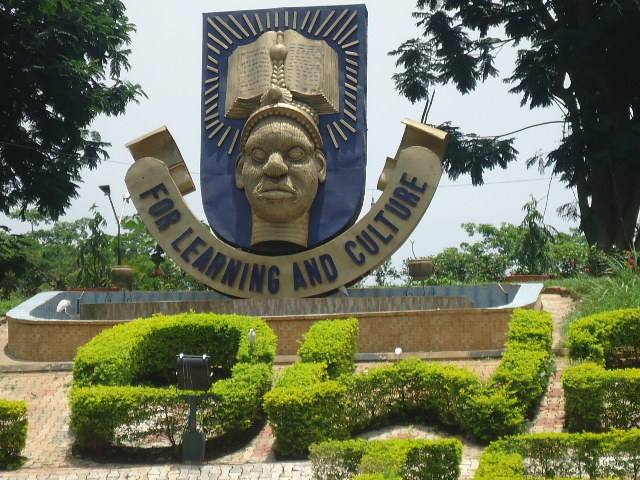[ad_1]
For the first time, at the 27th United Nations Climate Change Conference of Parties (COP27) in Sharm El Shiekh, Egypt, children and youth had a pavilion of their own.
The provision of a dedicated pavilion was a positive development in the recognition of this group of society in the climate change story. It was also a platform from which their voices began to be heard more clearly at the COP27 negotiations that held from November 6 to 18, in Sharm El Sheikh, Egypt.
Young people and children have attended previous conference of parties (COPs) where they made an impact on the negotiations. One notable young person at the COPs before COP27 is Greta Thunberg, a Swedish environmental activist who first attended the COP in 2019 at 16 years old.
However, for many young people, especially from the Global South, coming to COP27 was not a walk in the park.
A number of them shared with the Nigerian Tribune their experiences of how they made it to COP27.
For them, the hardest part appeared to be with getting accreditation from the United Nations Framework Convention on Climate Change (UNFCCC) itself.
Another major challenge was raising funds for airfare, accommodation, and feeding. These systemic and economic hurdles apparently kept an untold number of significant voices who otherwise could have been on the ground in Sharm El Sheikh to make their own contributions at the conference.
A young Ugandan, Elvis Omoit, is a part of the International Forestry Students Association, which is a global community of students studying forestry-related courses.
The first challenge for him was getting accreditation from the United Nations Framework Convention on Climate Change (UNFCCC).
He told Nigerian Tribune that “this is pretty much what most young people go through if they want to get to a meeting like COP27.
“You first need to find an organisation that is accredited with the UNFCCC. You can’t be accredited as an individual but rather through an organisation that is already accredited. If you don’t know an organisation that is accredited, then getting an opportunity to attend an event like COP27 is very small.”
Fortunately for him, the International Forestry Students Association is accredited.
“But I know a lot of young people out there who may not know about an organisation that is accredited. They may be involved with an organisation, but it is not accredited,” he added.
Having overcome the accreditation hurdle, Omoit said it got trickier for him with funding the trip; that is travel, accommodation, and feeding expenses in Egypt.
“Accreditation is just the first step. The organisation I am involved with is a student organisation. It does not have the capacity to fully fund people to attend events like COP27. It has some partial funding for some officials of the organisation.
“Speaking as someone from the Global South, even when you are provided with partial funding, you are not able to meet the remaining funding you need. It was quite expensive getting here looking at the costs of flight, accommodation, and feeding.”
Omoit said belonging to the Youths in Landscape Initiative, a network of young people that brings together the organisations: Youths for Nature, Young Professionals for Agriculture Development and International Forestry Students Association, was his saving grace in providing the needed finance.
He said, “There was a chance for young people from the Global South to be funded to come to COP27. That was how I got the opportunity to come to COP27.”
Omoit told Nigerian Tribune that the other difficulty is getting information about the opportunity to be at COP meetings.
“Even getting information about these opportunities is really hard. People don’t have access to information about these opportunities that are available for them to attend such events.
“If you don’t belong to a network that knows about these events, your chances about getting here are really meagre.”
Mana Omar is a climate justice and gender justice activist from Kenya. She said that her journey to COP27 began with a traumatic experience.
“Accreditation was the hardest part of my journey to COP. We were reaching out as youths to organisations that had accreditation. But they would block us out by telling us they had few slots for their own delegation.
“We were just at crossroads, not knowing what to do.”
“How I got to be here was through Fridays for Future MAPA (Most Affected People and Areas), a movement of youth activists from most affected places. They know us better as a collective and not as individuals. They connected me with organisations that gave me the badge to come to COP. And I can say it was just by chance.”
She said, “It was a traumatic experience for me because I carry the story of people who are most affected by climate change. Carrying such vital voices and having things not work out for you can be traumatic.”
For funding, Omar said she was about to start a Gofundme fundraiser, “I got funding through a UK publication. My story was published about how getting to COP was hard, and I got funding from generous people. I was also assisted by Fridays for Future to cover some part of my travel.”
She added that “it is also hard for funders because this place is so expensive. A budget for me to stay here is around $7,000.”
Geoffrey Mboya is also from Kenya. The climate activist said he came to COP27 “representing London School of Hygiene and Tropical Medicine as a youth advisor on Earth, Children and Cities; Living a Legacy Initiative as country director and Veterinary International as Kenya Communication Liason Officer.”
He said, “This is my first COP and I am excited. However, I am a bit apprehensive about access to accreditation from UNFCCC, because there are fewer organisations from Africa that are accredited. So, having access to accreditation was not easy for me. I really struggled just to be here.
“If I was not doing research with London School of Hygiene and Tropical Medicine, then I will not be here. This is because my other organisations were not accredited, which we are working on.
“My call is for future COPs to be more inclusive and take account of African activists to have more meaningful participation.”
In terms of raising funds, Mboya said he approached organisations, friends in his network, and his personal savings to fund the trip and stay in COP27.
Lovelyn Andraws Thalkuma is a Nigerian youth. She said it was a struggle for her to get the UNFCCC accreditation to attend.
“At first, I thought because I work for Rise Up Movement founded by Vanessa Nakate and Fridays for Future, it would be easy. But at some point, we were informed that accreditiation was low this year, so we had to hustle for it on our own.
“I did not know that I had to have accreditation from UNFCCC. I reached out to a friend who said some NGOs are accredited and that I should reach out to them. I started reaching out with emails and phone calls. But most told me that the spots were given out.”
She said however that a friend within the climate movement in Nigeria advised her to write to the Ministry of Environment through the Department of Climate Change.
Thalkuma said that after an interview with the director at the Department of Climate Change, she was able to receive UNFCCC accreditation through the ministry.
For funding, she said, “There is this organisation, ‘Together for Futures’ that funds climate change youth activists so that we can represent our countries and regions as the most affected people. They paid for my flight, accommodation and feeding.”
Thalkuma added that “accreditation and funding for the youth should be more accessible so that youths can attend COPs and participate in making policies and negotiations.”
Another Nigerian youth, Lucky Abeng, is with the Commonwealth Youth Climate Change Network. He attended COP26 in Glasgow last year and COP27 in Egypt.
He said: “When I confirmed I was going to COP27, I reached out to some NGOs in Nigeria that had UN Observer status. At this point, they have ability to issue accreditation. However, some had exhausted their slots, while some others were asking for financial payment to issue me accreditation.
“Because I know they don’t pay to receive accreditation, I reached out to other organisations and friends outside Nigeria, specifically in Ghana.
“I was able to get accreditation for the first week which I used in processing my visa.”
He said to get accreditation for the second week of COP27, he approached the Minister of Environment for second week accreditation “and he graciously issued me two weeks party overflow badge which was what I used for my two weeks participation at the COP.”
Abeng noted that “Accreditation was pretty difficult this year. Maybe due to the crowd-carrying capacity of Egypt. Glasgow was different. We had more people attending last year.
“I know a couple of young people who could not attend this particular COP because of accreditation issues and maybe funding as well which is always a challenge.”
This story was produced as part of the 2022 Climate Change Media Partnership, a journalism fellowship organised by Internews’ Earth Journalism Network and the Stanley Center for Peace and Security.
[ad_2]







